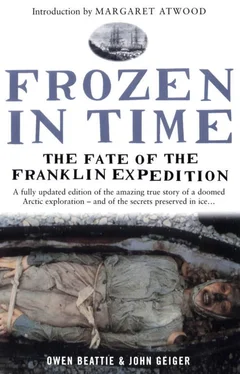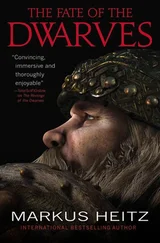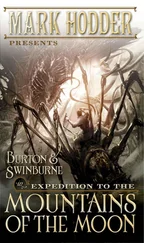STILL, NOT EVERY SHIP captain shared the navy’s enthusiasm for tinned provisions. In fact, the privately financed 1829–33 expedition of Captain John Ross was a feat of physical endurance and survival precisely because Ross sought to avoid reliance on preserved foods.
Following his 1818 maritime blunder, when Barrow rained such derision upon him that he never again received a Royal Navy command, Ross had been forced into semi-retirement at half-pay. He watched from the sidelines as his rival, Parry, undertook two further polar expeditions (in 1821–23 and 1824–25), at the end of which, Barrow conceded that knowledge about the Northwest Passage was “precisely where it was at the conclusion of his [Parry’s] first voyage.” Parry had even managed to lose one of His Majesty’s ships, the Fury, which was nipped by an iceberg in Prince Regent Inlet. Ross seized on the opening. He raised a private expedition and found a wealthy gin merchant, Felix Booth, to underwrite a voyage to complete the Northwest Passage aboard the Victory, a second-hand steamer that Ross refitted with state-of-the-art technology and manned with 23 officers and men.
It appeared at first that Ross would succeed. In Greenland, he received reports that it was an unusually warm summer. On 6 August 1829, the expedition entered Lancaster Sound, the site of his 1818 humiliation. Believing Prince Regent Inlet would eventually reveal an opening to the west, Ross tacked south, calculating correctly that the land mass, which had been named Somerset by Parry, was an island. He pressed further into these waters than any European before him, but missed Bellot Strait, the only opening to the west, and with time concluded that the western shore of Prince Regent Inlet was not an island but a peninsula, which he named Boothia, for his sponsor. By then it was too late to continue. With conditions deteriorating, the expedition established winter quarters at a place Ross called Felix Harbour. From here, the expedition embarked on the first of four winters in the Arctic, a harrowing saga that is remarkable—in equal measure—for the courage and endurance needed to survive it.
The following summer, the ice freed the Victory, allowing 3 miles (5 km) of hope before it closed in again and held the ship fast, trapping it for a second winter. In 1830, Ross’s young nephew, Commander James Clark Ross, led a sledge journey far to the west. He named the farthest place he reached Victory Point, and the adjoining territory was claimed in the name of King William IV. Unaware that he had crossed an ice-covered strait on his journey, Ross named the territory King William Land. In fact, it was King William Island. James Ross also noted an accumulation of pack-ice off the northwest coast, the “heaviest masses that I had ever seen in such a situation.” His sledge journey was a remarkable achievement in itself. The pièce de rèsistance, however, was his subsequent discovery of the North Magnetic Pole, which “Nature,” he wrote, “had chosen as the centre of one of her great and dark powers.” With that, the expedition became a triumph. “Nothing now remained for us but to return home and be happy for the rest of our days,” the younger Ross wrote. But by the summer of 1831, the Victory had been allowed only another 4 miles (6.5 km) of passage before the impenetrable ice barrier returned.
“To us,” John Ross declared, “the sight of ice was a plague, a vexation, a torment, an evil, a matter of despair.” The depth of this despondency is further revealed in his journal, where he confided: “I confess that the chances are now much against our being ever heard of.” He was faced with a critical decision: risk sitting out the following spring in the hope that by summer the ice would finally give way and the Victory would be freed, which seemed unlikely, or abandon the Victory and undertake a 300-mile (480-km) overland trek north while snow remained on the ground, allowing for sledge travel. Ross elected for the latter. His destination would be Fury Beach on Somerset Island, where there was a store of provisions left by Parry on an earlier expedition and the greater likelihood of open water. From there, Ross believed he could use the ship’s small boats to make a dash for Baffin Bay, to rendezvous with the summer whaling fleet.
Sledges were fashioned to haul the small boats loaded with provisions, and the captain ordered advance parties to establish a string of caches en route. Then, on 29 May 1832, the expedition abandoned the Victory and, in sub-zero temperatures and on two-thirds rations, headed north. But off Fury Beach, where open water had been expected, the ice had also failed to clear and the men were forced to endure a fourth winter in the Arctic. They barricaded themselves in a house of wood and snow they hurriedly constructed. It was little better than an igloo, yet Ross gave it a pompous name—Somerset House—and enforced rigid delineations of rank. It was a snow house divided. On one side, ordinary seamen were crammed together in their rank furs, muttering obscenities; the structure’s other half was segregated quarters for the officers, where John Ross continued to be waited upon hand and foot like the country squire he aspired to be. Ross grimly speculated whether “it should be the fortune of any one to survive after another such year as the three last.” But he maintained a stiff upper lip, and not only because of the cold.
To make matters worse, the men’s provisions were inadequate. Ross ordered half-rations, but by now, these consisted mainly of preserved meat and tinned turnip and carrot soup from the stores left by Parry. The crew’s only fresh meat came from the few Arctic foxes, and fewer hares, they could snare, with roast fox served on Sundays. The expedition surgeon made note of the deteriorating conditions: “we had scarcely any animal food… The development of severe scurvy at once served to heighten our misery, and to show how poor a defence a [tinned] vegetable regimen is…” It was, he wrote, “during our stay at the Fury’s stores that the worst form of the disease appeared.” The ship’s carpenter died of the illness in February 1833. John Ross was also suffering the effects of the dread disease: ancient wounds long-healed began to open as scar tissue dissolved. The captain wondered whether, “I might not be ultimately able to surmount all the present circumstances.”
Yet survive he did, and, in late summer, a lane of open water appeared into which, on 15 August 1833, the men launched their boats with a fine westerly breeze. Having “almost forgotten what it was to float at freedom on the seas,” they made 72 miles (116 km) on 17 August alone. Propelled by the wind when it blew, they rowed on amongst the icebergs when it dropped—once for a stretch of twenty hours without rest. After nine days heading east, they finally spotted a sail in the distance. The men desperately rowed towards the vessel, but after several hours a wind came up and the ship moved off to the southeast. Soon another sail was sighted, but that ship too sailed on. Wrote John Ross: “it was the most anxious moment that we had yet experienced, to find that we were near to no less than two ships, either of which would have put an end to all our fears and all our toils, and that we should probably reach neither.” But an hour later the wind dropped, and they again began to close on one of the ships. Finally, they saw it lower a boat that rowed over to meet them. Stunned, the mate in command assured Ross that he couldn’t be who he said he was, as Ross was known to have died two years earlier. That conclusion, Ross replied, had been “premature.” They were unshaven, filthy, “dressed in the rags of wild beasts,” gaunt and starved to the bone. But they were definitely alive.
Читать дальше










